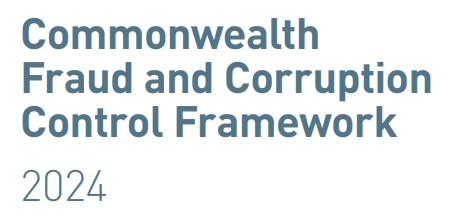By the Commonwealth Fraud Prevention Centre
Fraud and corruption are risks that can undermine the objectives of every Australian Government entity in all areas of their business, including delivery of services and programs, policy-making, regulation, taxation, procurement, grants and internal procedures.
Fraud and corruption divert resources from achieving the public good and increase the costs involved in delivering services to Australians. These potentially criminal activities reduce funding available for building infrastructure, strengthening the economy, educating future generations, providing quality healthcare and a strong safety net for our most vulnerable and disadvantaged.
The hidden nature of fraud and corruption makes it difficult to quantify their true volume and cost to individuals, the private sector and the government – much of it goes undetected. However, we do know that the cost of fraud against the Commonwealth that is detected exceeds hundreds of millions of taxpayer dollars each year. Moreover, when using international comparators, it is estimated that between 3% - 5.95% of Australian Government expenditure is lost to fraud and improper payments. This is unacceptable.
Other costs are less obvious. Corruption is an abuse of trust that undermines the social contract the Government holds with the Australian public. Over time this can erode perceptions of a transparent and accountable government, subverting democratic process and the rule of law. Corruption can perpetuate inequality and poverty, impacting on well-being and undermining opportunities to participate equally in social, economic and political life. Together fraud and corruption undermine program and policy objectives, reducing the availability and quality of essential services and undermining regulatory interventions designed to protect Australia’s economic, social and environmental interests. As such, fraud and corruption are directly at odds with the role of government and deprive Australians of the societal value they rightly expect to receive from the public sector.
This is why the Australian Government takes fraud and corruption extremely seriously and has taken a range of actions to counter fraud and corruption, including through the establishment of the Commonwealth Fraud Prevention Centre in 2019 and the National Anti-Corruption Commission in 2023.
The new Commonwealth Fraud and Corruption Control Framework, which came into effect on 1 July 2024, further strengthens the Government’s reforms to improve the standards of integrity across the public sector. Based on best practice and with a focus on prevention, the new framework will support more proactive and targeted measures to minimise the serious harms fraud and corruption causes for the community and the public sector.
The most significant change in the new framework is the expansion of its application to corruption. New requirements have also been added to improve your ability to manage fraud and corruption effectively through appropriate governance structures and oversight, effective risk management processes, and regular reviews and reporting on risks, controls and incidents.
We all have a role to play in preventing fraud and corruption. You can help by:
- reading the framework and talking to colleagues about how you can work together to strengthen our counter fraud and anti-corruption efforts to fight fraud and corruption
- undertaking regular training on fraud and corruption awareness so that you can identify warning signs and risks – find out about the new APS Foundations: Fraud and Corruption Induction training on the APS Academy’s website.
- being proactive about preventing fraud and corruption, including when designing new policies, programs and transformation initiatives – there are experts in your agency who can help
- reporting suspected fraud and corruption.
Visit counterfraud.gov.au to learn more about the new framework and build your knowledge about countering fraud and corruption.






